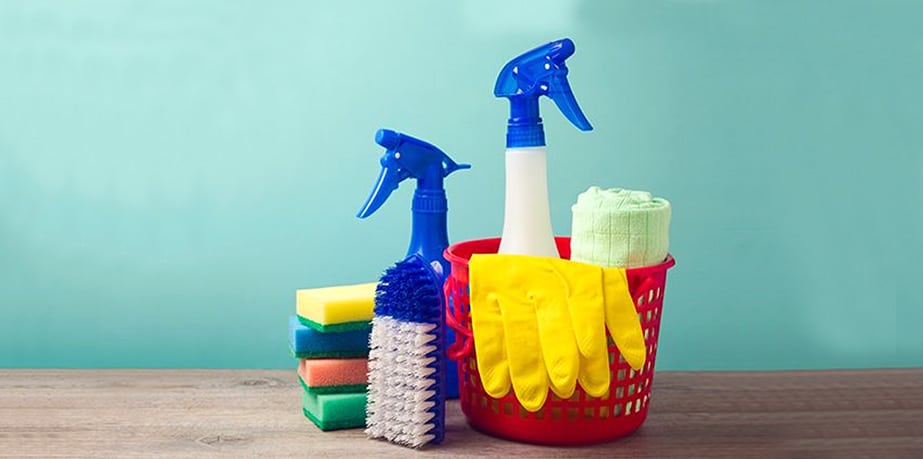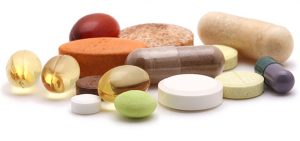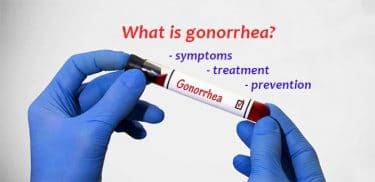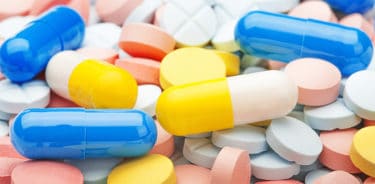Disinfectants are an effective sanitary materials used to protect against microorganisms as viruses and bacteria. Their importance have increased due to coronavirus pandemic. However, disinfectants are toxic and harmful to all living things. They may cause serious harm to human health. There are many types of disinfectants and they are formulated and produced according to the areas of use. Some are produced particularly for hospitals, while some others are produced for basic household cleaning. Therefore, disinfectants should be accordingly. For example, bleach used at home is very effective for the coronavirus. In this article, you can find information about use of disinfectants and how to produce at home.
Table of Contents
What are disinfectants?
Disinfectants are antimicrobial chemicals produced to clean and eliminate viruses and microorganisms on the surfaces. Unlike sterilization, disinfection does not eliminate all microorganisms. It is not very effective for resistant bacteria. A proper disinfectant should not cause harm to people, but provide complete hygiene, be inexpensive, and should not corrode the surface applied. However, disinfectants are harmful and even poisonous to living things.
Functions of Disinfectants
Disinfectants serve to both clean the surface and eliminate infectious microorganisms (bacteria, virus, fungus, mold or rust) on the surface. The “active ingredient” in their formula and other ingredients added, depending on the purpose, demolishes the cell wall of microrganisms or affect their metabolism.
When to use disinfectants?
We are surrounded by various microorganisms, and most of them are harmless to humanbeings. But microorganisms called pathogens causing disease can be dangerous and sometimes fatal. Thus, disinfectants are often used in hospitals, dental clinics, kitchens and bathrooms. Appropriate products are very important to prevent the spread of cold, flu and other diseases.
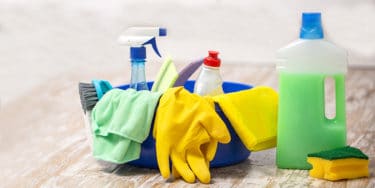
For example, disinfectants for hospitals should be used regularly to maintain hygiene of surfaces and medical devices. It is especially necessary for the surfaces which people touch frequently (light switches, telephone, TV remote control, bed edges, nightstand, etc.).
Disinfectants are also widely used for household cleaning. It is not necessary on the general surfaces of house, but kitchen worktops, sinks, bathtubs and counters used to cut meat may sometimes need to be cleaned with disinfectants.
Use of Disinfectants
- Do not use disinfectants frequently. Excessive use may kill the bacteria you need to be exposed to, thereby leading to some complications.
- Do not apply them to the skin. Disinfectants can only be applied to inorganic objects. They can damage the skin and other tissues.
- If disinfectants used in the interior are mixed with other cleaning products, a chemical reaction may occur.
- Use products that you are sure of their quality.
- Always wear gloves when using any type of disinfectants.
- Be sure to ventilate the environment you are in. Open the windows and doors.
- Wear normal or protective glasses to prevent your eyes from contacting them.
- After the cleaning is over, wash your hands and the exposed parts of the skin thoroughly and clean all the tools exposed to the chemicals.
Types of disinfectants
- Quaternary Ammonium Compounds: These disinfectants are preferred in hospitals, nursing homes and other healthcare institutions due to affordability and rapid effects on a wide range of microorganisms.
- Chlorine compounds: They are especially effective in resistant viruses and many pathogens. Chlorine-based disinfectants (bleach etc.) are inexpensive and can quickly eliminate pathogens.
- Alcohol: It is mostly diluted with water and is effective in a wide range of bacteria. However, as it evaporates quickly, it may not stay on a surface long enough to disinfect. Therefore, the amount is important.
- Iodophores: Although they are preferred to disinfect some medical devices,they are not preferred for the disinfection of places due to its unpleasant odor (like iodine) and stains left on surfaces.
- Phenolic Compounds: Mycobacterium is effective in many pathogens, including tuberculosis, fungi, and viruses. However, it is extremely toxic and corrosive.
- Hydrogen Peroxide: It is usually mixed with peracetic acid for special disinfection processes. These strong oxidizers may be highly reactive and dangerous when contacted with various surfaces.
How to use disinfectants against the coronavirus?
Which disinfectants are effective against coronavirus?
Experts have repeatedly stated that washing hands properly and frequently is the most effective way to protect yourself against coronavirus. Moreover, proper use of disinfectants together with washing hands is critical to protect and hinder the spread of the disease.
Bleach is the most effective disinfectant in protection against the coronavirus. However, there are some rules to consider not to do harm to oneself while using it:
- Use bleach diluting with water.
- Be sure that the product is not expired.
- Follow the instructions of use.
- Should wear gloves.
- Ventilate the environment you are in.
- Do not use bleach mixing it with ammonia or other cleaning products.
Other than bleach, safer cleaning products like white vinegar or soda can also be used. However, it is not well known how effective they are against the coronavirus. Furthermore, disinfectants such as alcohol or hydrogen peroxide can be extremely effective when diluted appropriately.
How to make a disinfectant at home for coronavirus?
Bleach solution for home use
Dilute 1/3 glass of bleach with 3.5 liters water or 4 teaspoons with 1 liter water.
How to make hand sanitizer gel?
The amount of alcohol in the disinfectant mixture for it to be effective is at least 60% of the mixture. However, you may aim at an amount of 75% alcohol for proctection against the coronavirus. Using vodka or whisky is not sufficient to provide it. You should us isopropyl containing 99% alcohol.
Necessary materials:
- 1 bottle of isopropyl alcohol
- Aloe vera gel
- Tea tree oil (You can add levander oil to get different fragrance)
Preparation: Consider the proportion of the gel as 3 unit isoprpyl alcohol to 1 unit aloe vera gel. For example, mix 1 tea cup of aloe vera into 3 tea cups of alcohol. Add 2 drops of tea tree or levander oil for fragrance.
Hand sanitizer spray
Materials:
- İsopropyl alcohol
- Glycerol or glycerine
- Hydrogen peroxide
- Refined or boiled and cooled water
- Spray bottle
Preparation:
- Mix 1.5 cups of isopropyl alcohol with 2 teaspoons of glycerol or glycerine (Glycerol will prevent alcohol from drying your hand. You can prepare it without glycerol, but don’t forget to moisturize your hands after spraying).
- Add 1/3 cup of water and 1 tablespoon of hydrogen peroxide into the mixture and put it into the spray bottle.
Harm and risks of disinfectants
All chemical disinfectants are, by nature, potentially harmful or toxic to living organisms. Some are even flammable and explosive. They can react violently with different chemicals and become poisonous. Therefore, the correct use of disinfectants is extremely important.
It is important not to use strong disinfectants for household cleaning only if we are not talking about disinfecting any hospital or healthcare institution. Harm of some common disinfectants to human health can be listed as follows:
Formaldehyde:
Toxic and carcinogenic. Harm:
- May irritate the skin or eyes
- May causecoughing and dyspnea.
- May induce chronic bronchitis and asthma.
Ethylen oxide:
Toxic and also carcinogenic when inhaled. Harm:
- May irritate the skin, eyes and respiratory tract.
- May cause harm to the nervous system.
Glutaraldehyde:
- Irritates the skin, eyes and respiratory tract.
- May cause allergic contact dermatitis when contacted.
- May induce asthma.
Concentrated hydrogen peroxyde solution:
- May cause local burnt and irritate mucous membrane, eyes and the skin.
Quaternary Ammonium Compounds:
- May cause mild to severe irritation to the skin and mucous membrane.
Iodine solutions and iodophors:
- May cause allergic reactions.
- Concentrated iodine compounds may irritate the skin.
Phenol disinfectants:
- May cause skin irritation, local burnt, headache, vomiting and diarrhea.
- May cause harm to the kidneys.
Alcohol disinfectants:
- May irritates if there is a wound on the skin.
- Inhalation of concentrated alcohol vapour may irritate the respiratory tract and affects the central nervous system.
The Harm of Daily-used Disinfectants
Antibacterial soaps
As these products cannot be washed out of the hands completely and continue to eliminate bacteria, some of residual bacteria become immune. Therefore, they continue to proliferate. There is no information about that antibacterial soaps are more effective than water and usual soap.
Alcohol-based hand sanitizers
Experts recommend the use of alcohol-based hand sanitizers only when there is no access to water and soap though there are no serious side effects or harm.
Bleach
It is irritating when contacted with the skin. When it is mixed with other chemicals, it is poisonous and may cause serious respiratory problems.

